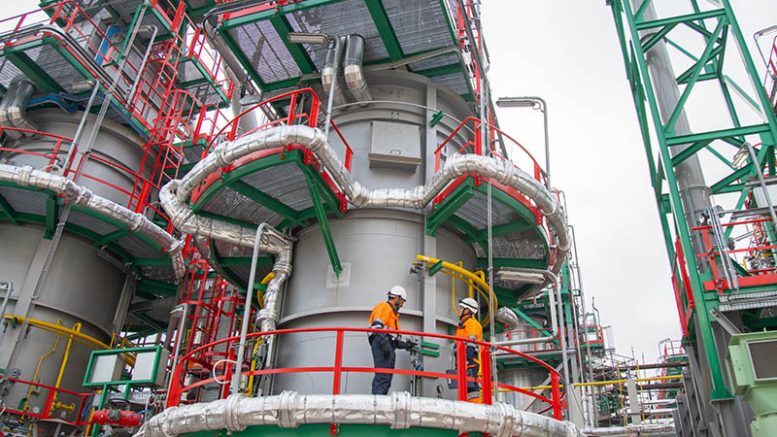The new plant in Cartagena (Murcia), in which €250 million have been invested, has a production capacity of 250,000 tonnes per year, processing some 300,000 tonnes per year of organic waste, such as used cooking oil and food waste, among others.
It can produce renewable diesel and sustainable aviation fuels (SAF), which can be used in any means of transport: cars, trucks, buses, ships or planes, taking advantage of existing refuelling infrastructures. Repsol calculates that the renewable fuels that will be manufactured in Cartagena will avoid 900,000 tonnes of CO2 per year.
Repsol currently supplies 100% renewable fuel at more than 140 locations in the main cities and transport corridors of Spain and Portugal. The company’s goal is to reach 600 by the end of this year and 1,900 by 2027.
The new plant in Cartagena, whose production of renewable fuels represents 5% of its total diesel production or 17% of its paraffin production, will be joined in 2025 by a second one in Puertollano.
Repsol has alliances for the supply of renewable fuels with leading companies in the heavy road transport sector in Spain and Portugal, with companies in the passenger transport sector in Spain, and with airlines such as Iberia, Ryanair, Vueling and Air Europa for commercial flights.





